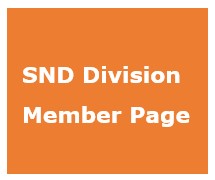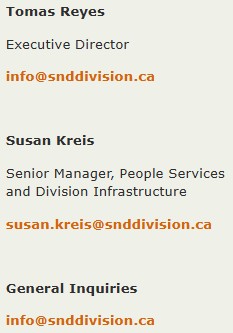A Relationship with Patient Needs at Its Heart

This series highlights the ways in which Family Physicians and Home Health Community Health Nurses are working together to support patients in Surrey-North Delta.
*Names have been changed to protect patient confidentiality
At 96 years old, Mrs. K* lived with her daughter and her family. In addition to suffering from dementia, her mobility was limited and she was confined to a wheelchair. Like many families of ageing loved ones, Mrs. K’s daughter was committed to taking care of her at home. But it wasn’t easy.
“She was dependent on her carers,” explains her Family Physician, Dr. Kulwinder Mann, “but the family didn’t want to move her to assisted living because it would be unfamiliar to her, coming from a culture where elderly people are cared for by their family members. They felt she wouldn’t do well.”
The challenge of caring for her elderly mother had put a heavy strain on Mrs. K’s daughter, who confided to Dr. Mann that she was struggling.
What can a Family Physician do for patients like Mrs. K and their families? Dr. Mann’s solution lay in Winona Rohrback, his Home Health Community Health Nurse.
Do You Have Homebound Patients on Your Panel? Probably.
Hundreds of people throughout the Fraser Health Region are considered homebound, and many Family Physicians will have at least some patients on their panel who fit the criteria.
The reasons a patient may be homebound are diverse, but include frailty, complex medical conditions such as diabetes or COPD, and mobility issues. Many such patients are elderly and many want to maintain their independence for as long as possible rather than moving to a residential care facility.
Ensuring these homebound patients receive the primary care services they need can be challenging. “Before, if I had somebody who needed wound care or a dressing change, I would just go in and do it myself,” recalls Dr. Mann. “I felt like I was running myself thin, but these patients can’t get to my office, and I didn’t want them to have to present at Urgent Care.”
Dr. Mann has a large panel, with roughly 100 patients who are homebound. While he would love to be able to see them all in person as often as needed, it simply isn’t possible.
This is where Winona comes in.
After speaking with Mrs. K’s daughter, Dr. Mann put in a referral to Home Health, where Mrs. K was assigned to Winona's caseload. “She assessed the situation and arranged for Mrs. K to participate in a day program, including the transportation she requires to and from the program,” he explains. This arrangement not only provides Mrs. K with socialization and enrichment, but also gives her caregivers a few hours of respite. Winona visits Mrs. K twice a week to check in on her and make sure her care needs continue to be met.
Community Health Nurses: Your Eyes and Ears in the Community
Winona and Dr. Mann have been working together for around 3 years. Winona is one of several Community Health Nurses, or CHNs, in the Surrey-North Delta area.
In addition to working with Family Physicians to care for homebound patients, CHNs also see patients who don’t have Family Physicians. Winona supports five or six Family Physicians and has a caseload of between 85 and 135 patients, depending on the week.
As a CHN, Winona provides a wide range of health services, including wound care, palliative care, in-home support for personal care, IV therapy, support to attend day programs, and overnight respite for caregivers. For her, it’s all about her clients’ safety. “The primary thing is client safety,” she explains. “It's making sure they’re getting the health service they need and that they have someone checking on them regularly if they’re vulnerable.”
Equally crucial to the health services that Winona provides are the assessments that she is able to do during her visits.
“Going into the home, we don't just assess the client,” explains Winona, “we assess their supports and the environment.” Because she is able to visit patients in their home, Winona is able to see whether they need additional supports beyond their primary care needs, and she is often able to connect them with those additional supports.
“We do deal with a lot of complex families,” explains Winona, “and when we've got a vulnerable adult, sometimes we need to get social workers or other Fraser Health services involved to kind of collaborate and figure out what is needed for this person.”
“I don’t know how she did it.” Responding to a Hospital Discharge Emergency
Mrs. B’s* case highlights Winona’s ability as a CHN to connect the dots for Dr. Mann’s vulnerable patients. Despite her advanced Parkinsons, 81-year-old Mrs. B had been living independently with in-home supports. That all came to a halt when a medical emergency brought her to the hospital.
“Because of her shaking and recurrent falls, she was essentially bedbound,” explains Dr. Mann. “She was medically cleared to leave the hospital, but there weren’t any residential beds available yet, so they were going to discharge her back to Independent Living.” The independent living facility, however, was not equipped to provide the 24/7 care that Mrs. B now required. “The alternative was that this 81-year-old grandmother was going to be sent to a shelter to wait for a bed in residential care to open up because she had nowhere to go.”
When one of Dr. Mann’s homebound patients requires assistance, he will send a referral to Winona. If the matter is urgent, he will text or call her to let her know. “She acts on it appropriately or she follows up,” says Dr. Mann. “She always gets back to me."
Similarly, Winona knows that if she needs a quick reply for Dr. Mann – for example, if a patient is resisting her advice but would listen to a suggestion from a doctor – he will always reply right away.
It’s this kind of trust-based, mutual relationship that allows Dr. Mann and Winona to effectively support their patients.
When Winona learned about the situation with Mrs. B, it was half an hour before the end of her shift. “It was a very late admission,” Winona recalls. “I received a call that this client was going to be on her way home, but she needed round-the-clock care and a mechanical lift for transfers.”
Winona immediately called the Fraser Health Deployment Centre and requested two workers who would be able to jointly care for Mrs. B twenty-four hours a day while she waited for a more suitable placement. She then put in a request for an emergent intolerable risk placement. Within a few days, this request was fulfilled, and Mrs. B was moved to a residential care bed where she could receive appropriate care.
“The healthcare system is so overwhelmed, but luckily Fraser Health is coming out with a number of resources to deal with these kinds of situations,” says Winona. “If we didn't have that as a backup, we would've had to just send her right back to the hospital.”
A Strong FP-CHN Relationship Yields Patient Satisfaction
Stories like Mrs. K’s and Mrs. B’s happen every day in our community. It’s the relationship between Family Physicians like Dr. Mann and Community Health Nurses like Winona that make it possible to care for homebound patients effectively.
Both Dr. Mann and Winona agree that receiving visits from a CHN is key to preventing many patients from ending up in the hospital unnecessarily. And it is their ability to rely on each other that is a key to their success.
Their advice to other Family Physician-Community Health Nurse teams is straightforward: “To CHNs, I would say to reach out to your doctor and try to meet them in person,” explains Winona. “Make sure they have your direct contact information.” Dr. Mann agrees: “Just having that relationship goes a long way,” he says. “CHN’s are a very valuable use resource and when that relationship is functioning well, it can yield just excellent patient care, patient results, patient satisfaction.”
Do you know who your CNH is?
Home Health sends quarterly faxes to all Family Physicians in Surrey-North Delta, informing them about who their Community Health Nurse is, and which of their patients are receiving Home Health supports.
Ask your MOA about the most recent Home Health fax, or visit a one of the following pages on Pathways:



